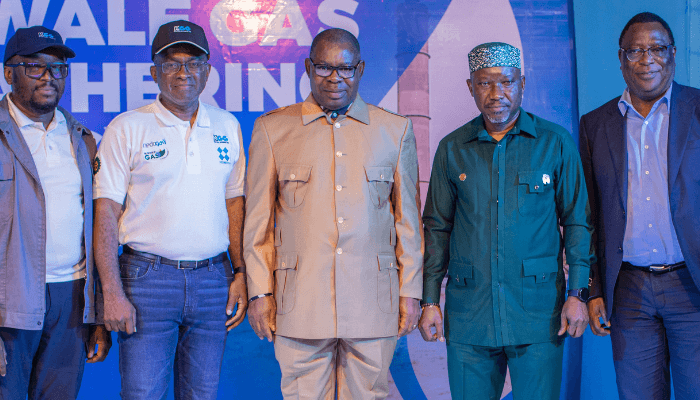Nigeria’s energy sector has received a boost with the coming onstream of Nedogas Plant and the Kwale Gas Gathering Facility, a 300 million standard cubic feet per day gas processing facility to promote the use of cleaner energy.
Located in Ndokwa West LGA, Delta State, the Kwale Gas Gathering Facility and the upgraded Nedogas Processing Plant (NGPP) would enhance Nigeria’s capacity in natural gas processing, help in monetising gas, and eradicating wastage and environmental degradation associated with oil exploration by minimising gas flaring.
This facility comes at a time when Nigerians are seeking cheaper and environmentally friendly energy sources that reduce cost and carbon footprint.
Commissioned recently by Ekperikpe Ekpo, minister of State for Petroleum Resources (Gas), both facilities signify a major step forward in Nigeria’s energy sector, underscoring the nation’s collective commitment to innovation, sustainability, and economic development.
With an impressive capacity of 300 million standard cubic feet per day (MMscfd), the KGG Facility is a testament to innovation, determination, and strategic partnerships.
The facilities are expected to address the challenge of stranded gas resources by providing infrastructure for gas gathering, compression, injection, and metering.
It is expected to unlock the potential of natural gas fields in the OML56 oil province and offer independent operators a viable and immediate pathway to market.
The Nedogas Plant in Energia’s Ebendo field, just 3 kilometres away, boasts an initial gas injection capacity of 25 MMscfd.
“The facilities are not just infrastructure projects; they represent a significant leap in our nation’s ability to harness and use natural gas resources efficiently. The plant will enhance our capacity to process natural gas into critical products, thus boosting our domestic supply and export capabilities Ekperikpe Ekpo, minister of State for Petroleum Resources (Gas) said at the inauguration.
Earlier, Emeka Ene, chairman and CEO of Nedogas Development Company Limited (NDCL), said the completion of the facility is a significant milestone in Nigeria’s journey towards harnessing natural gas resources for economic growth and environmental sustainability.
He said the facility is not just a hub but a beacon of opportunity for the entire region.
Ene lauded the Nigerian Content Development and Monitoring Board (NCDMB) and the NNPC Gas Infrastructure Company Limited (NGIC), a subsidiary of the Nigerian National Petroleum Company (NNPC) for their unwavering support and collaborative spirit which was instrumental in bringing the visionary project to fruition.
“As we ramp up the injected gas volumes, we look forward to receiving additional gas from neighbouring fields operated by First Hydrocarbon Nigeria (FHN), Pillar Oil, Chorus Energy, and Midwestern Oil & Gas,” said Ene.
The facilities align with Nigeria’s Decade of Gas initiative and would enable Nigeria’s transition from gas flaring to gas monetisation, promising cleaner energy and a healthier environment.
Highlighting the socio-economic benefits of the project, Ene said the facilities would create hundreds of direct and indirect jobs and contribute significantly to the economic upliftment of the host and nearby communities.
Felix Ogbe, executive secretary of NCDMB, applauded all the stakeholders involved in the remarkable project.
“These projects also highlight the importance of collaboration between the government, private sector, and local communities. It is through such partnerships that we can achieve meaningful progress and ensure that the benefits of our natural resources are widely shared. The NCDMB remains committed to fostering such collaborations and creating an enabling environment for investment and innovation,” Ogbe said.
Sheriff Oborevwori, governor of Delta State, who was represented by his deputy, Monday Onyeme, described the facilities as critical infrastructure in Delta State’s burgeoning energy sector.
“These projects are more than just industrial installations; they are pillars of progress that will support the socio-economic development of Delta State and Nigeria at large. They will not only provide cleaner energy but also create jobs, foster local industry, and contribute to a more sustainable environment,” he said.
With an estimated 180 billion cubic feet of proven natural gas reserves, Nigeria stands at the cusp of a new era in energy. The Nedogas and KGG Facility are examples of how the country can harness this potential to build a sustainable future.
